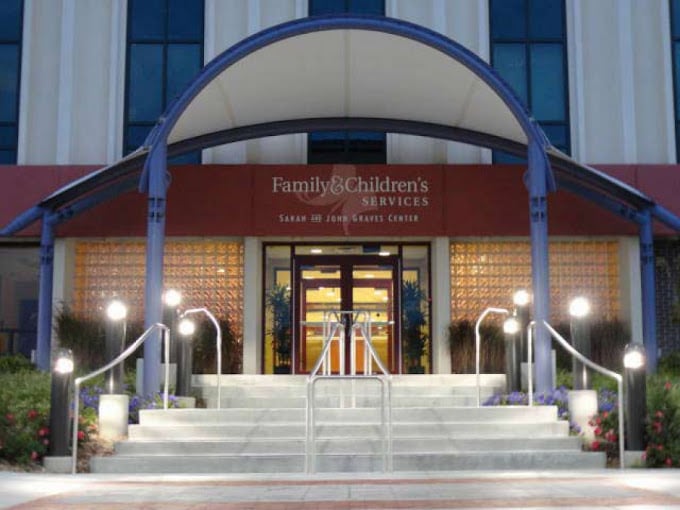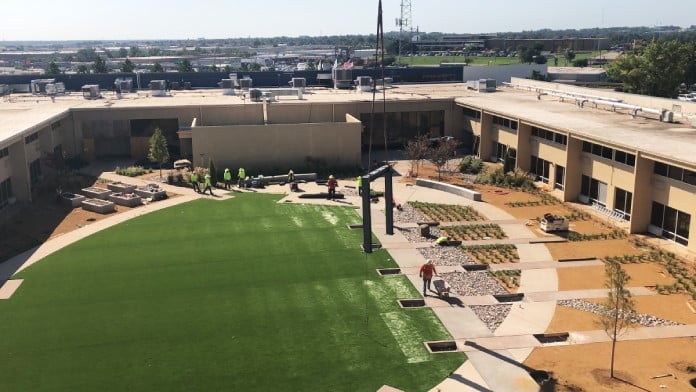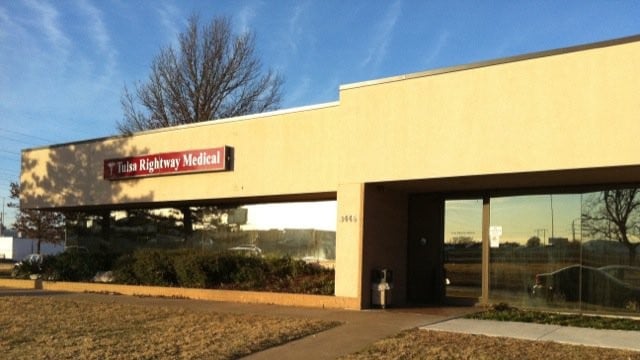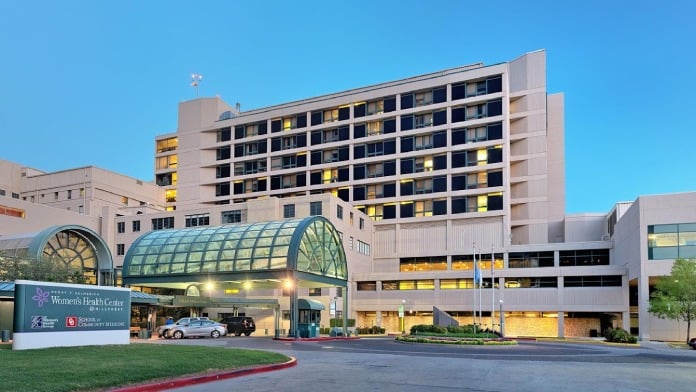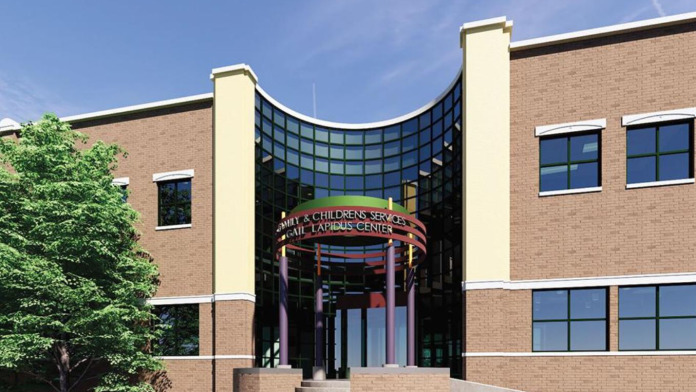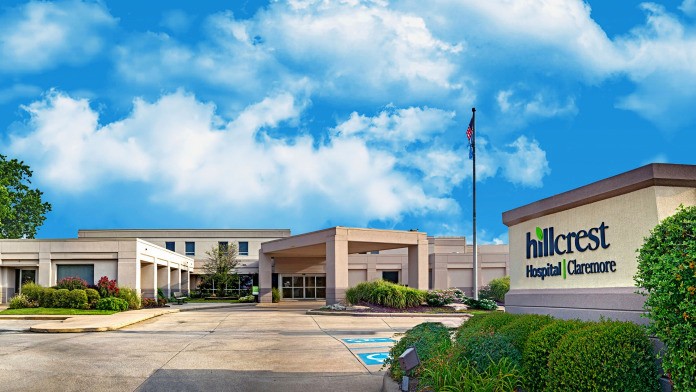It helped me so much, the improvement has been noticeable. Thank you so much for your help. You guys made me start living again !!
About Keetoowah Cherokee Treatment Services
Keetoowah Cherokee Treatment Services (KCTS) provides help for opioid addiction in Tulsa, Oklahoma. Their goal is to get you on the road to recovery with professional, compassionate care. They have a knowledgeable staff ready to answer your questions and guide you through the program.
Treatment for Everyone
KCTS is owned by the United Keetoowah Band of Cherokees, but they serve tribal and non-tribal guests. And if you aren’t in Tulsa, they offer assistance in Tahlequah, Jay, and Kansas.
The Tulsa location provides medication assisted treatment (MAT) using the FDA-approved medicine methadone to lessen withdrawal symptoms and reduce drug cravings. They combine this service with counseling to address all aspects of healing, not only the symptoms.
A Team-Based Approach
You won’t feel isolated when getting treatment with KCTS. They have a team of specialists to help you recover, including psychiatrists, nurse practitioners, therapists, case managers and peer recovery specialists.
Case managers can connect you to additional resources for ongoing recovery care. They can help with housing, insurance and transportation.
Peer support is included in some of their programs. These specialists help guide you through the program to get the most out of their services. They can also connect you to other support resources for continued sobriety assistance.
Latest Reviews
Rehab Score
Gallery
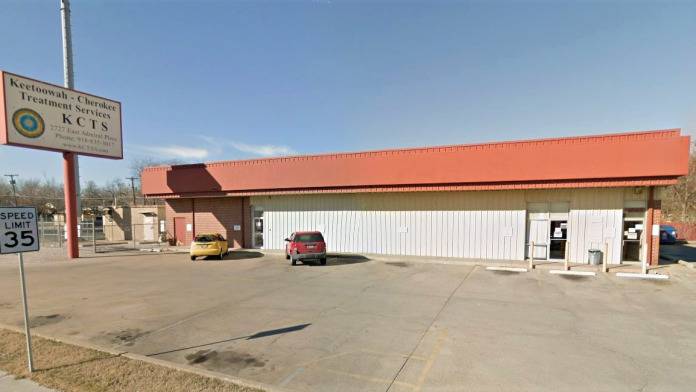
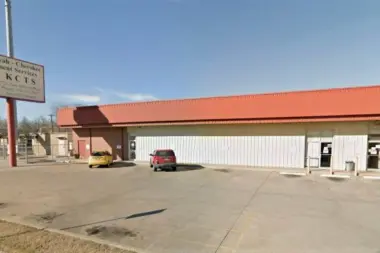
Other Forms of Payment
Medicaid is a state based program that helps lower-income individuals and families pay for healthcare. Medicaid covers addiction treatment so those enrolled can use their coverage to pay for rehab. When a program accepts Medicaid the client often pays very little or nothing out of their own pocket.
Self-pay involves paying for treatment out of your own pocket. You can use savings or credit, get a personal loan, or receive help from family and friends to fund your treatment. If you don't have insurance or your insurance plan doesn't cover a specific program, self-pay can help ensure you still get the care you need.
Financial aid can take many forms. Centers may have grants or scholarships available to clients who meet eligibility requirements. Programs that receive SAMHSA grants may have financial aid available for those who need treatment as well. Grants and scholarships can help you pai for treatment without having to repay.
Addiction Treatments
Levels of Care
Outpatient Programs (OP) are for those seeking mental rehab or drug rehab, but who also stay at home every night. The main difference between outpatient treatment (OP) and intensive outpatient treatment (IOP) lies in the amount of hours the patient spends at the facility. Most of the time an outpatient program is designed for someone who has completed an inpatient stay and is looking to continue their growth in recovery. Outpatient is not meant to be the starting point, it is commonly referred to as aftercare.
Drug and alcohol addiction often takes a heavy toll on one's body. Over time, a physical dependence can develop, meaning the body physiologically needs the substance to function. Detox is the process of removing drugs and/or alcohol from the body, a process that can be lethal if mismanaged. Medical detox is done by licensed medical professionals who monitor vital signs and keep you safe, healthy, and as comfortable as possible as you go through detox and withdrawal.
Intensive Outpatient Programs (IOP) are for those who want or need a very structured treatment program but who also wish to live at home and continue with certain responsibilities (such as work or school). IOP substance abuse treatment programs vary in duration and intensity, and certain outpatient rehab centers will offer individualized treatment programs.
Treatments
The goal of treatment for alcoholism is abstinence. Those with poor social support, poor motivation, or psychiatric disorders tend to relapse within a few years of treatment. For these people, success is measured by longer periods of abstinence, reduced use of alcohol, better health, and improved social functioning. Recovery and Maintenance are usually based on 12 step programs and AA meetings.
To address the issues of addiction, each drug rehab in Oklahoma is tailored to meet the individual's needs. Treatment may occur in a residential or outpatient setting, and may last from a few days to several months.
Many of those suffering from addiction also suffer from mental or emotional illnesses like schizophrenia, bipolar disorder, depression, or anxiety disorders. Rehab and other substance abuse facilities treating those with a dual diagnosis or co-occurring disorder administer psychiatric treatment to address the person's mental health issue in addition to drug and alcohol rehabilitation.
Opioid rehabs specialize in supporting those recovering from opioid addiction. They treat those suffering from addiction to illegal opioids like heroin, as well as prescription drugs like oxycodone. These centers typically combine both physical as well as mental and emotional support to help stop addiction. Physical support often includes medical detox and subsequent medical support (including medication), and mental support includes in-depth therapy to address the underlying causes of addiction.
Substance rehabs focus on helping individuals recover from substance abuse, including alcohol and drug addiction (both illegal and prescription drugs). They often include the opportunity to engage in both individual as well as group therapy.
Programs
Adult rehab programs include therapies tailored to each client's specific needs, goals, and recovery progress. They are tailored to the specific challenges adult clients may face, including family and work pressures and commitments. From inpatient and residential treatment to various levels of outpatient services, there are many options available. Some facilities also help adults work through co-occurring conditions, like anxiety, that can accompany addiction.
Serving in the military is both mentally and physically challenging, and can result in trauma that persists even after combat ends. Military programs are tailored to the specific and often complex needs of active duty personnel, veterans, and military families. Clients often access these programs through the U.S. Department of Veterans Affairs (VA).
Young adulthood can be an exciting, yet difficult, time of transition. Individuals in their late teens to mid-20s face unique stressors related to school, jobs, families, and social circles, which can lead to a rise in substance use. Rehab centers with dedicated young adult programs will include activities and amenities that cater to this age group, with an emphasis on specialized counseling, peer socialization, and ongoing aftercare.
Clinical Services
In family therapy, spouses, partners, parents, or children join the counseling session. The aim is to emphasize the strengths of the complete family and diminish the influence of substance abuse. The effects of addiction aren’t limited to the addicted person, and the causes of substance abuse can be varied and complex. Successful treatment, therefore, often incorporates the family of the person struggling with addiction. The therapist will work with the family unit as a complete group, smaller subgroups, and with members individually to create a plan based on the family dynamics.
Group therapy gives patients recovering from substance abuse the opportunity to learn new coping techniques, practice their communication skills, and gain hope and strength from their peers. For many, their interpersonal relations have been reduced to interactions with dealers and other drug users. In group therapy, they can meet men and women like themselves who are facing the same struggles with substance abuse. It is a place were patients can learn how to develop trusting, sober relationships with others. Group therapy sessions are led by a trained mental health professional. Sessions typically last approximately one hour.
In individual therapy, the patient works with a mental health professional in private sessions to acquire self-knowledge, insight into addiction, and a stronger sense of inner strength. A typical therapy session lasts from 50 minutes to an hour. Individual therapy sessions are structured according to the patient’s needs. Therapy is a collaborative process. in which the therapist and patient work together to move the patient forward through the stages of recovery.
Life skills trainings involve all the skills a person must have in order to function successfully in the world. These include time management, career guidance, money management, and effective communication. Truly successful addiction recovery is based on the ability to not only live substance-free, but to thrive. Life skills teaches the practical necessities of functioning in society, which sets clients up for success in life, and therefore sobriety.
Trauma therapy addresses traumatic incidents from a client's past that are likely affecting their present-day experience. Trauma is often one of the primary triggers and potential causes of addiction, and can stem from child sexual abuse, domestic violence, having a parent with a mental illness, losing one or both parents at a young age, teenage or adult sexual assault, or any number of other factors. The purpose of trauma therapy is to allow a patient to process trauma and move through and past it, with the help of trained and compassionate mental health professionals.
Amenities
-
Residential Setting
-
Private Setting
Accreditations

The Commission on Accreditation of Rehabilitation Facilities (CARF) is a non-profit organization that specifically accredits rehab organizations. Founded in 1966, CARF's, mission is to help service providers like rehab facilities maintain high standards of care.
CARF Accreditation: Yes

The Substance Abuse and Mental Health Services Administration (SAMHSA) is a branch of the U.S. Department of Health and Human Services. Established in 1992 by congress, SAMHSA's mission is to reduce the impact of substance abuse and mental illness on American's communities.
SAMHSA Listed: Yes
Contact Information
2727 East Admiral Place
Tulsa, OK 74110
